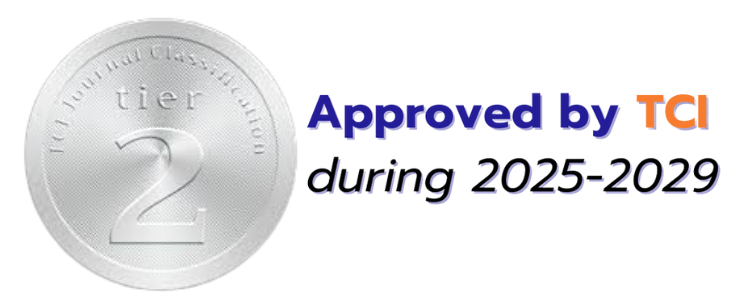ปัญญาประดิษฐ์ ในพลศึกษาเพื่อการเรียนรู้ | Artificial Intelligence in Physical Education for Learning
Keywords:
ปัญญาประดิษฐ์, พลศึกษา, การเรียนรู้, Artificial Intelligence, Physical Education, LearningAbstract
ปัญญาประดิษฐ์ (Artificial Intelligence: AI) เป็นการพัฒนาให้คอมพิวเตอร์ เครื่องจักรกล หุ่นยนต์ และเทคโนโลยีสมัยใหม่ มีความสามารถที่ชาญฉลาดเช่นเดียวกับมนุษย์ เข้าใจภาษามนุษย์ จดจำรูปภาพ เสียง และสามารถทำงานได้ตามที่ต้องการตลอดจนสามารถ เลียนแบบพฤติกรรมการทำงานของมนุษย์ได้เป็นอย่างดีตัดสินใจได้อย่างถูกต้องตามข้อเท็จจริงของข้อมูลนั้น ๆ โดยอัตโนมัติ การเพิ่มความสามารถด้านปัญญาประดิษฐ์ ในระดับอุดมศึกษา การบูรณาการข้อมูลต่าง ๆ เพื่อปรับปรุงผลสัมฤทธิ์ทางการศึกษาของผู้เรียน และส่งเสริมความเท่าเทียมกันในการเรียนรู้ ซึ่งสามารใช้ปัญญาประดิษฐ์ ส่งเสริมการเรียนในผู้ใหญ่ที่ไม่รู้หนังสือ หรือมีทักษะการเรียนรู้อย่างจำกัด ช่วยนำทางแบบเรียน การสื่อความหมายด้วยภาพ และใช้คำพูดให้เข้าใจง่าย อีกทั้งจะช่วยในการแก้ปัญหาในเรื่องจริยธรรม ความโปร่งใสในการแสดงผลสัมฤทธิ์ทางการศึกษาของผู้เรียน รวมไปถึงนำข้อมูลของผู้เรียนมาใช้ในการพัฒนา
การเรียนพลศึกษานั้น มีการแสดงผลสัมฤทธิ์ทางการเรียน ไม่ว่าจะเป็นด้านความรู้ ด้านทักษะ และด้านเจตคติ กระบวนการของปัญญาประดิษฐ์ เข้าไปช่วยในการประมวลผล เครื่องมือวัด แบบทดสอบ และการประเมินผล ซึ่งกระบวนการเหล่านี้ยังขาดเรื่องของปัญญาประดิษฐ์ จะเข้ามาเสริมเพื่อเพิ่มประสิทธิภาพในด้านต่าง ๆ ซึ่งจะช่วยให้ผู้อ่านสามารถนำไปเป็นแนวคิดหรือปรับเปลี่ยนเนื้อหา กิจกรรมการเรียนรู้ ให้สอดคล้องความถนัด และความต้องการของผู้เรียนแต่ละคนได้เป็นอย่างดี โดยใช้เทคโนโลยีเข้ามาช่วยในการจัดการเรียนการสอน ตลอดจนช่วยสร้างแรงจูงใจและกระตุ้นการเรียนรู้ให้กับผู้เรียนได้อย่างมีประสิทธิภาพมากยิ่งขึ้น และเพื่อรองรับการเปลี่ยนแปลง ปัญญาประดิษฐ์ เข้ามามีบทบาทในภาคการศึกษามากขึ้นในอนาคตนั้น
Artificial Intelligence (AI) is the development that allows computers, machines, robots and advanced technologies to process human intelligence, understand human languages, recognize pictures, sounds and be able to performing tasks as needed including stimulate human working’s behavior very well with accurate decision making based on actual facts automatically. The evaluation of artificial intelligence in higher education, data integration in improving learners' educational achievements, and equality promotion in learning by applying artificial intelligence allow Illiterate adults or who have limited learning skills to have guideline in textbook, visual interpretation and be able to use words that are easy to understand. Moreover, It will also benefit in solving ethical problems and fairly displaying students' educational achievements as well as using student’s data for development.
In Physical Education, there are learning achievement results as knowledge, skills, and attitudes. The artificial intelligence can be assisted in processing measuring tools, tests and assessments. However, those process are lacked of artificial intelligence that will increase efficiency in various aspects. This study allows readers to adopt ideas or modify the contents and create learning activities in accordance with abilities and needs of each learner accordingly by using technology in teaching and learning management as well as motivate and stimulate learners to learn more effectively and to prepare for changes that artificial intelligence will play a great role in education in the future.







